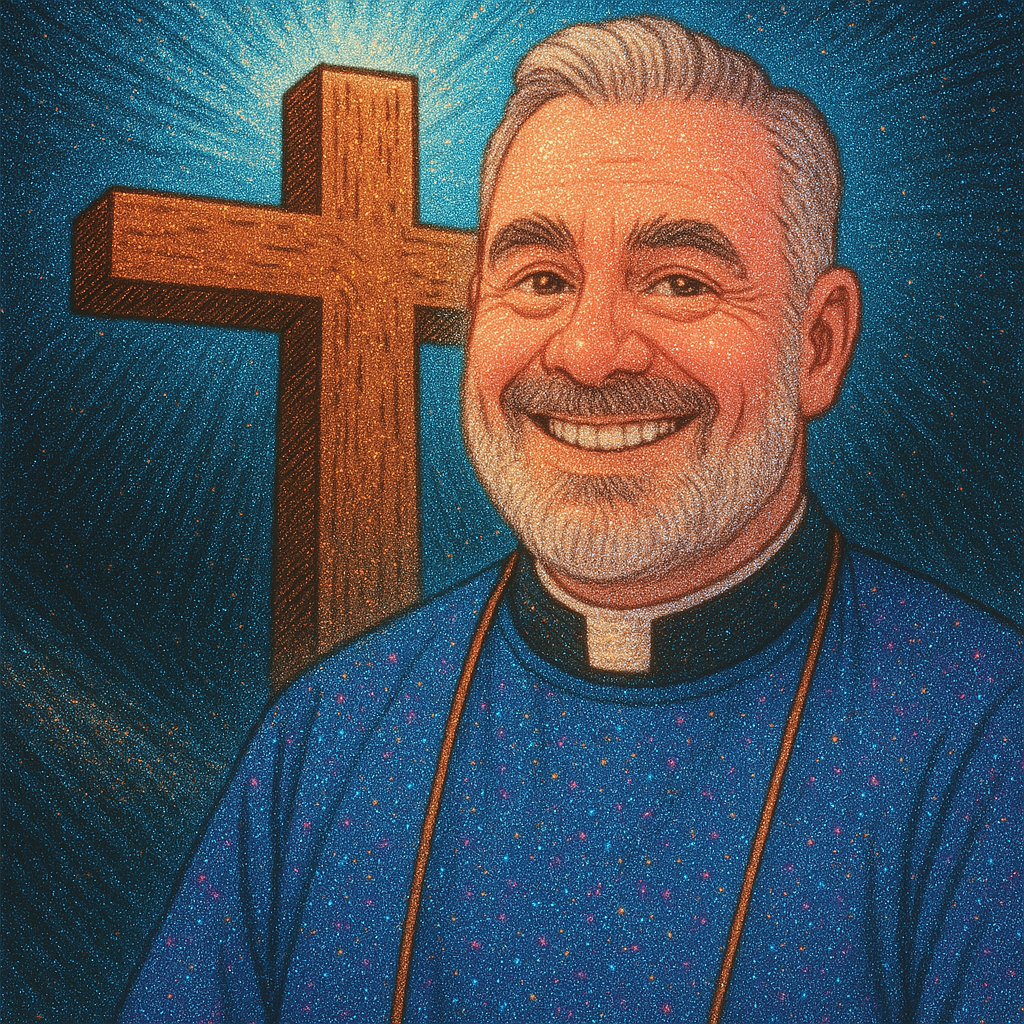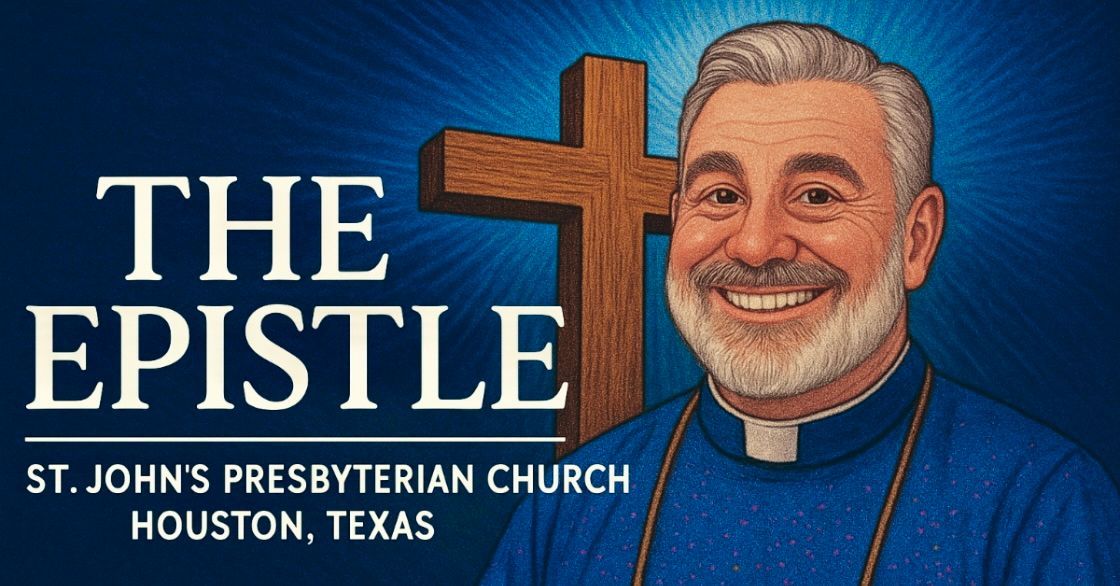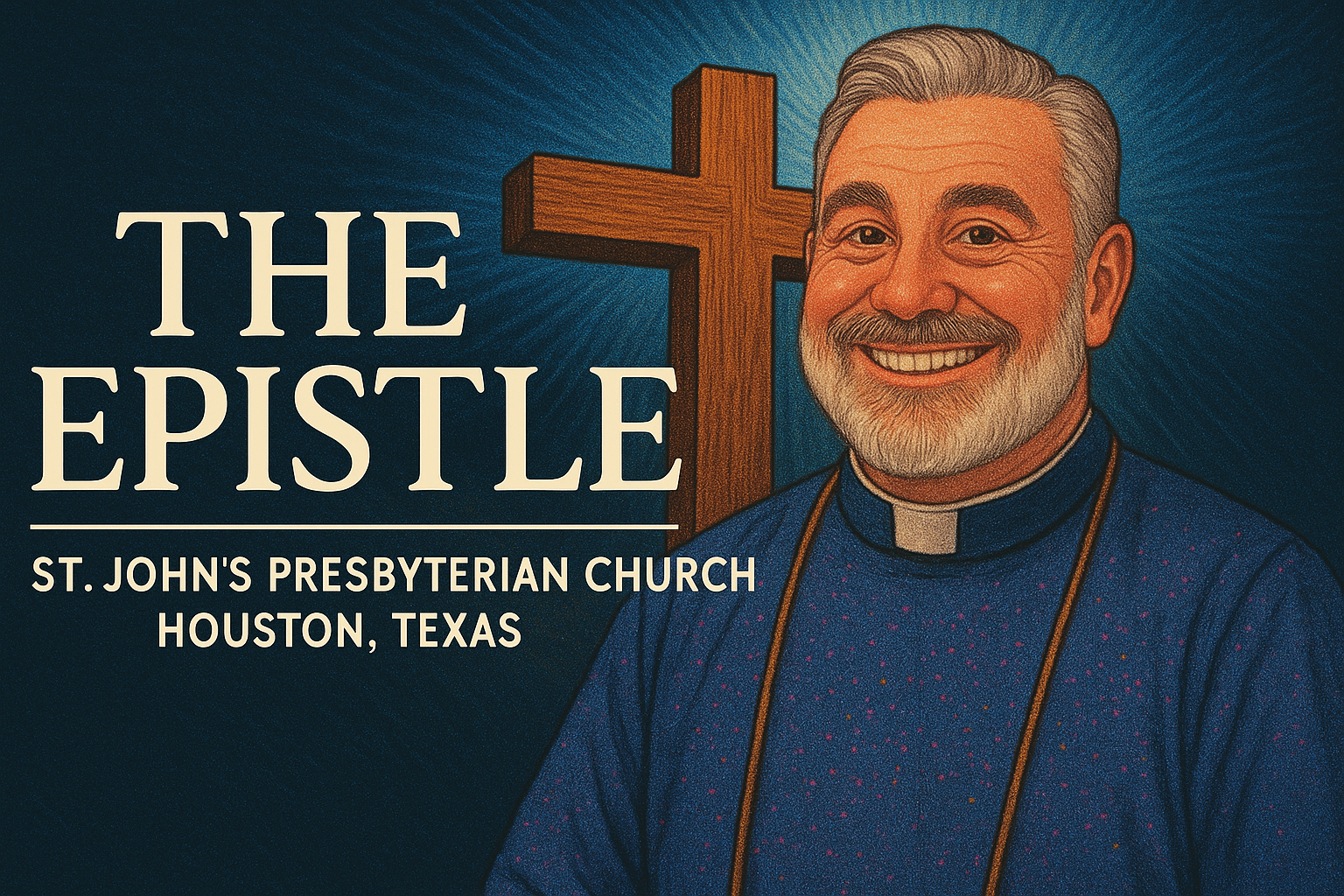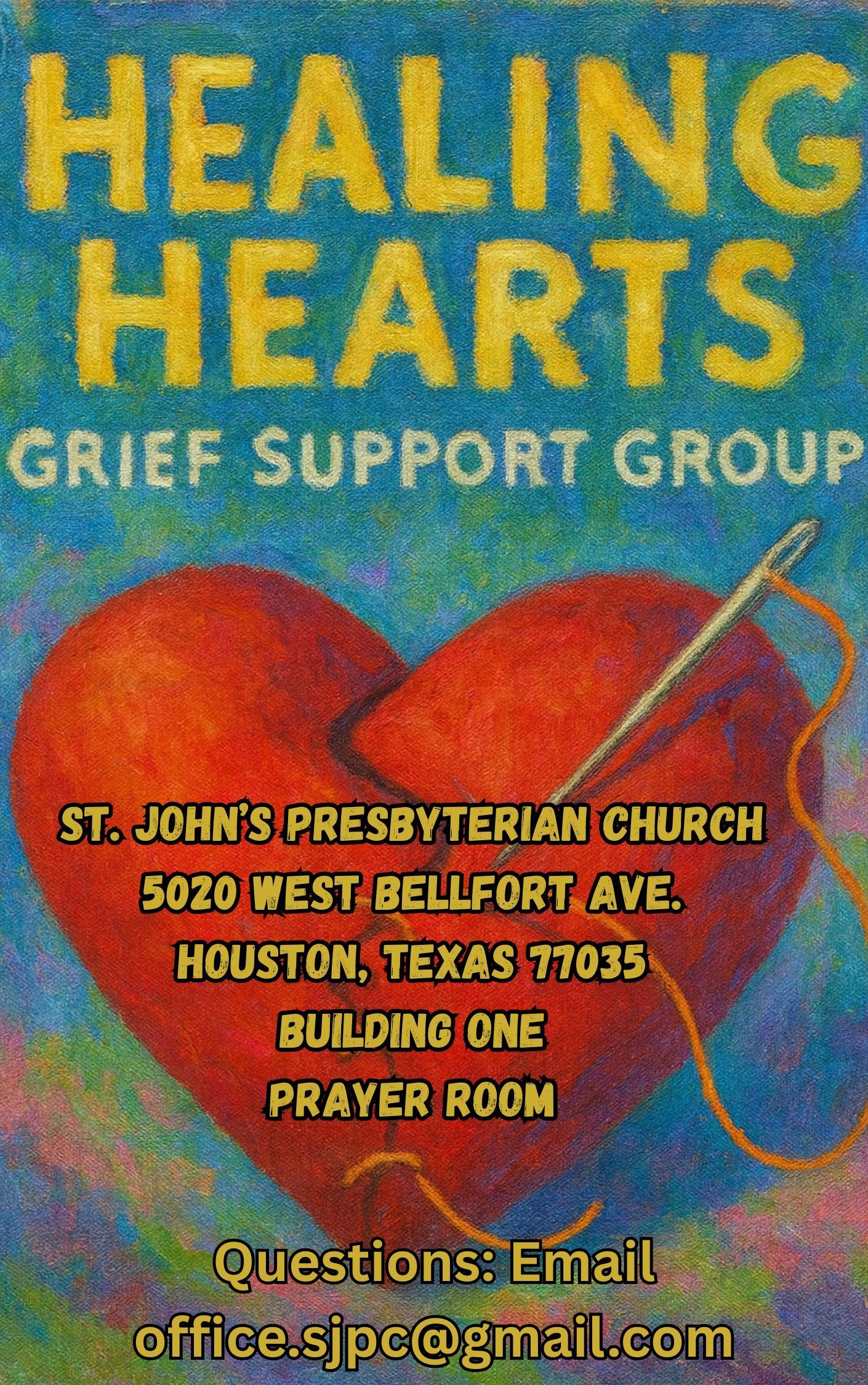Why Does God Allow Suffering?
A Presbyterian Pastor Explains
The question came during coffee hour after worship. A woman I'd never met before looked me straight in the eye and asked, "Pastor, where was God when my daughter died?"
She wasn't being confrontational. She genuinely wanted to know. Her daughter had been killed by a drunk driver six months earlier. The funeral was at another church. She'd been angry at God ever since, but something made her walk through our doors that Sunday.
I wish I could tell you I had a perfect answer that healed her pain instantly. I didn't. What I had was honesty, some biblical wisdom, and a community that knew how to sit with grief without trying to fix it too quickly.
That conversation is why I'm writing this. Because if you're searching "why does God allow suffering" at two in the morning, you're probably not looking for a theology lecture. You're hurting. You're confused. You're wondering if faith makes any sense at all when life falls apart.
I'm Pastor Jon at St. John's Presbyterian Church in Houston. I've walked with people through cancer diagnoses, job losses, betrayals, deaths, hurricanes, and every kind of suffering you can imagine. I've also wrestled with this question in my own life. What I've learned might not answer everything, but I hope it helps.
The Question That Won't Go Away
Every pastor gets asked about suffering. It's the question that either deepens faith or destroys it, depending on how honestly we wrestle with it.
Here's what people actually want to know:
If God is good and God is powerful, why doesn't he stop bad things from happening? If he could prevent suffering but doesn't, how can we call him loving? If he wants to prevent it but can't, how can we call him God?
Philosophers call this "the problem of evil." Real people call it Tuesday.
Because suffering isn't theoretical. It's the phone call that changes everything. It's the diagnosis that steals your future. It's the person who breaks your heart. It's the system that crushes your spirit. It's the flood that takes your home. It's the violence that shatters your sense of safety.
And when you're in the middle of it, neat theological answers feel insulting.
What the Bible Actually Says (Starting with Job)
Let's go straight to the biblical book that tackles suffering head-on: Job.
Job was a good man. He honored God, took care of his family, and helped his neighbors. Then everything fell apart. His children died. His wealth vanished. His health collapsed. His friends showed up and basically told him it must be his fault because God doesn't let good people suffer.
Job knew better. He insisted he'd done nothing to deserve this. He demanded answers from God.
When God finally responds, he doesn't give Job a neat explanation. Instead, God asks Job a series of questions: Where were you when I laid the foundations of the earth? Can you command the morning? Do you know when the mountain goats give birth?
God's point isn't to put Job in his place. It's to remind him that the universe is bigger and more complex than any human can fully grasp. Some questions don't have simple answers because reality itself is complicated.
That might sound unsatisfying. But notice what God doesn't say. He doesn't say Job deserved what happened. He doesn't blame Job. He doesn't give a philosophical explanation for why suffering exists. Instead, God shows up. He engages with Job's pain. He takes Job's questions seriously.
And somehow, that's enough for Job. Not because he gets answers, but because he encounters God in the middle of his suffering.
The Presbyterian Understanding of God's Providence
As Presbyterians, we believe in God's providence. That means God is sovereign over all creation and actively sustains everything that exists. Nothing happens outside God's awareness or control.
That sounds comforting until suffering enters the picture. Then it raises hard questions.
Here's what we don't believe: We don't believe God causes every bad thing that happens as some kind of punishment or test. We don't believe suffering is God's preferred way of teaching us lessons. We don't believe God enjoys watching us hurt.
Here's what we do believe: God created a world with genuine freedom. That freedom makes love possible. It also makes sin possible. When humans chose sin, suffering entered the world as a consequence. Not as God's direct action, but as the natural result of broken relationships with God, each other, and creation itself.
God could have made us as robots programmed to obey. Instead, he made us capable of real choice. Real love requires real freedom. Real freedom includes the possibility of real harm.
That doesn't let God off the hook entirely. If God is truly sovereign, he could still stop every instance of suffering. The fact that he doesn't is the mystery we live with.
But here's where Presbyterian theology offers something hopeful: God doesn't just allow suffering and step back. He enters into it. He redeems it. He works through it to accomplish purposes we can't always see in the moment.
The Cross Changes Everything
The ultimate answer to suffering isn't an explanation. It's a person.
Jesus experienced every kind of suffering. Poverty. Homelessness. Betrayal by close friends. False accusations. Physical torture. Public humiliation. Abandonment. Death.
God didn't stand at a safe distance and watch humanity suffer. He became human and suffered with us. On the cross, Jesus took into himself all the evil, pain, and brokenness of the world.
This is why Christians talk about redemptive suffering. Not because suffering itself is good, but because God can bring good out of evil. The cross proves it. The worst thing that ever happened (the murder of God's Son) became the best thing that ever happened (the salvation of the world).
Paul writes in Romans 8:28, "We know that in all things God works for the good of those who love him." Notice Paul doesn't say all things are good. He says God works in all things to bring about good. There's a difference.
The same chapter continues: "I consider that our present sufferings are not worth comparing with the glory that will be revealed in us." Paul wasn't minimizing pain. He was pointing to a future hope that makes present suffering bearable.
Stories from Our Community
Let me tell you about three people from St. John's Presbyterian who taught me about suffering and faith.
Robert lost his job at 58. In Houston's oil and gas industry, that's basically a career death sentence. Nobody wanted to hire someone that close to retirement. He spent two years looking for work. His savings ran out. His marriage got strained. He told me once, "Pastor Jon, I'm starting to think God doesn't care."
We kept him connected to the community. The deacons helped with bills a few times. Other members gave him leads on job openings. Someone hired him to do odd jobs. It wasn't much, but it kept him afloat.
Eventually, he found work. Not the job he wanted, but something. Looking back, Robert says those two years taught him who his real friends were and what really matters. He wouldn't choose to go through it again, but he's grateful for what he learned.
Maria's son got addicted to opioids after a back injury. For five years, she watched him spiral. Rehab, relapse, jail, repeat. She asked me every question about suffering you can imagine. Why would God let this happen? What did she do wrong as a mother? How could a loving God watch her son destroy himself?
I had no good answers. But our prayer group held her together. Every Tuesday night, the same women showed up to pray with her. They didn't offer explanations. They just sat with her in the pain.
Her son finally got clean two years ago. He's working now, rebuilding his life slowly. Maria says she still doesn't understand why God allowed those five years of hell. But she knows she couldn't have survived them without her church family.
Dorothy buried her husband after 47 years of marriage. Cancer took him fast. Six months from diagnosis to death. She told me later that the hardest part wasn't the grief itself. It was how many people vanished from her life afterward. Friends who didn't know what to say just stopped calling.
Our Caring and Fellowship Committee visits Dorothy every month. Not because they have to. Because they care. They bring lunch, play cards, take her to doctor appointments. Small things that add up to something meaningful.
Dorothy says she still misses her husband every single day. She still doesn't understand why God took him so soon. But she's grateful she has people who don't try to explain it away. They just show up.
What Suffering Teaches Us (When We Let It)
I don't believe God causes suffering to teach us lessons. But I do believe we can learn from suffering if we stay open to it.
Suffering strips away pretense. When you're hurting badly enough, you can't maintain the performance anymore. You can't pretend you have it all together. You need help. That vulnerability can actually deepen relationships if you're in a community that knows how to handle it with care.
Suffering clarifies priorities. Things that seemed important before suddenly don't matter. You realize who your real friends are. You discover what you actually believe versus what you just inherited. You learn what you're capable of enduring.
Suffering builds compassion. People who've never suffered often lack empathy for those who are struggling. Once you've been through something hard, you recognize pain in others. You know how to sit with people in their mess without trying to fix it too quickly.
Suffering can strengthen faith, but not always in the ways you'd expect. Sometimes faith gets stronger not because you get answers, but because you learn to trust God even without answers. You discover that God is bigger than your questions and closer than your pain.
But let me be clear: Not everyone learns these lessons. Some people get crushed by suffering. Some people's faith doesn't survive. I've seen it happen. Which is why community matters so much in how we process pain.
The Difference Between Explanation and Comfort
When someone is hurting, they rarely need an explanation. They need comfort.
This is where a lot of well-meaning Christians get it wrong. We jump straight to theological answers or Bible verses, trying to make sense of what happened. But that's not what people need in the moment.
Job's friends are the perfect example. They showed up after his tragedy and spent the first seven days just sitting with him in silence. That was helpful. Then they opened their mouths and started explaining why he was suffering. That made everything worse.
Sometimes the most faithful response to suffering is simply: "I don't know why this happened. But I'm here with you. And God is too."
That's what our community does at its best. We show up. We bring meals. We pray. We listen. We cry with people. We help with practical needs. We don't rush them through grief or try to convince them it all makes sense.
Because here's the truth: Sometimes suffering doesn't make sense. Sometimes there's no lesson to learn or purpose to discover. Sometimes bad things just happen in a broken world, and all we can do is hold each other up until the weight gets lighter.
Where Is God in the Suffering?
People ask me, "Where was God when this terrible thing happened?"
My answer: God was exactly where he always is. Right there in the middle of it.
Not causing it. Not enjoying it. Not standing back and watching with detachment. But present in the pain, working to bring redemption even out of evil.
Sometimes God's presence is obvious. You feel peace that doesn't make sense given the circumstances. You experience provision exactly when you need it. You encounter people who show up at just the right moment.
Other times, God feels completely absent. You pray and hear nothing. You search for meaning and find only darkness. You beg for help and get silence.
Those moments are real. Jesus himself cried out from the cross, "My God, my God, why have you forsaken me?" If Jesus felt abandoned by God in his suffering, we shouldn't feel guilty when we feel the same way.
But here's what I've learned: God's felt absence doesn't equal God's actual absence. Sometimes God is closest when we feel him least. Sometimes faith means trusting God is there even when every indication suggests otherwise.
Why We Don't Have All the Answers (And That's Okay)
Some Christians act like they have suffering all figured out. They can explain exactly why God allows evil. They have neat formulas for understanding pain. They can tell you the lesson God is teaching through your tragedy.
I don't trust those people.
The mystery of suffering is too big for simple answers. Anyone who claims to fully understand it is either lying or hasn't suffered enough yet.
As Presbyterians, we're comfortable with mystery. We believe in a God who is beyond human comprehension. We don't have to explain everything. We don't have to defend God's choices. We just have to be faithful to what we do know and honest about what we don't.
What we know: God is good. God is powerful. God loves us. Jesus suffered and died to redeem us. The Holy Spirit comforts us. The church is meant to bear one another's burdens. Suffering is temporary. Redemption is coming.
What we don't know: Why God allows specific instances of suffering. Why some people suffer more than others. Why prayers for healing sometimes get answered and sometimes don't. How to make sense of senseless tragedy.
Living with that tension is part of mature faith.
Practical Steps When You're Suffering
If you're in the middle of suffering right now, here's what I'd tell you:
First, be honest with God. Tell him exactly how you feel. Anger, doubt, confusion, despair... God can handle it all. The Psalms are full of people yelling at God. He doesn't punish honesty.
Second, stay connected to community. Don't isolate. Even when you don't feel like being around people, stay plugged in. Let people help you. Accept the meals, the prayers, the presence. This is what the church is for.
Third, take care of your body. Suffering takes a physical toll. Sleep when you can. Eat something nutritious. Get outside for a few minutes. These small things matter.
Fourth, lower your expectations. You don't have to have it all together. You don't have to understand everything. You don't have to be strong. Just survive today. Tomorrow can wait.
Fifth, hold loosely to timelines. Healing doesn't follow a schedule. Grief doesn't expire after a certain number of weeks. Give yourself permission to take as long as you need.
Sixth, look for God in small things. When you can't sense God's presence in big, obvious ways, pay attention to tiny glimpses. A text from a friend. A moment of peace. A memory that makes you smile. A stranger's kindness. God often shows up in these small gifts.
Why This Matters for Choosing a Church
When you're looking for a church, ask how they handle suffering. Because you will suffer. Something hard will happen. How will the community respond?
At St. John's Presbyterian, we've learned that being small helps. When Dorothy's husband died, the whole church knew. When Robert lost his job, people noticed he was missing from his usual spot. When Maria's son was struggling, the prayer group held her together.
You can't get that in a church where you're just another face in the crowd. You need to be known. You need people who will notice if you're not okay. You need a community that's practiced the art of sitting with pain.
That's what authentic Christian community offers. Not answers to all your questions. Not protection from all suffering. But presence. Solidarity. Practical help. Prayer. Hope.
I think back to the woman who asked me about her daughter. We talked for over an hour that day. I didn't give her a satisfying explanation for why God allowed a drunk driver to kill her child. I couldn't.
But I introduced her to Maria and Dorothy. I invited her to join our prayer group. I told her she could be angry at God in this place and we'd still welcome her. I promised her we knew how to sit with grief.
She started coming regularly. Slowly, very slowly, she began to heal. Not because she got answers. But because she found people who understood that some questions don't have answers, and loved her anyway.
The Hope We Hold Onto
Here's what keeps me going as a pastor who sees suffering constantly: I believe this isn't the end of the story.
Christians believe in resurrection. Not just Jesus rising from the dead, but a future day when God will wipe away every tear. When death will be defeated. When suffering will end. When everything broken will be made whole.
Paul writes in Romans 8:18, "I consider that our present sufferings are not worth comparing with the glory that will be revealed in us."
That's not minimizing pain. It's keeping perspective. This life, with all its suffering, is not the final chapter. God is writing a much longer story, and the ending is already secured.
Until that day comes, we hold each other up. We trust what we cannot see. We hope when circumstances suggest hopelessness. We love because God first loved us. We serve because Christ served us. We endure because the Spirit strengthens us.
And we keep showing up, one Sunday at a time, to remind each other that suffering does not have the last word. God does.
An Invitation
If you're suffering right now, I want you to know: You're not alone. You're not being punished. Your pain matters. Your questions are valid. And there's a community that knows how to hold space for people who are struggling.
That's what we do at St. John's Presbyterian Church in Houston. We don't have all the answers about suffering. But we've learned how to walk with people through it. How to pray when words fail. How to help with practical needs. How to wait patiently for healing that comes slowly.
You don't have to have your life together to visit. You don't have to hide your pain or pretend you're okay. You can bring your anger at God. You can bring your doubts. You can bring your questions.
We'll sit with you in it. We'll pray with you. We'll share our own stories of suffering and survival. We'll point you toward hope without rushing you through grief.
Because that's what the church is supposed to be. Not a place for people who have it all figured out, but a community for people who are still figuring it out. Not a hospital for the healthy, but a refuge for the wounded.
The question "Why does God allow suffering?" might never have a satisfying answer in this life. But you don't have to wrestle with it alone. Come wrestle with us. Bring your questions. Bring your pain. Bring yourself.
The door is open. The light is on. Someone is waiting to welcome you.
St. John's Presbyterian Church
5020 West Bellfort Avenue
Houston, Texas 77035
(713) 723-6262
stjohns@stjohnspresby.org
Sunday Worship: 11:00 AM
Everyone welcome. Especially those who are hurting.
Want to explore more about faith, suffering, and authentic Christian community?
Read our other articles about what makes Presbyterian worship distinctive, how to find a church that offers genuine fellowship, and why smaller congregations create stronger support systems during life's hardest moments. Visit stjohnspresby.org to learn more about our community.
Pastor Jon
P.S. If you're in crisis right now, please reach out. Call our church office. Email me directly. Show up on Sunday. Don't suffer alone. The church exists for moments like this. Let us help carry the weight with you.






